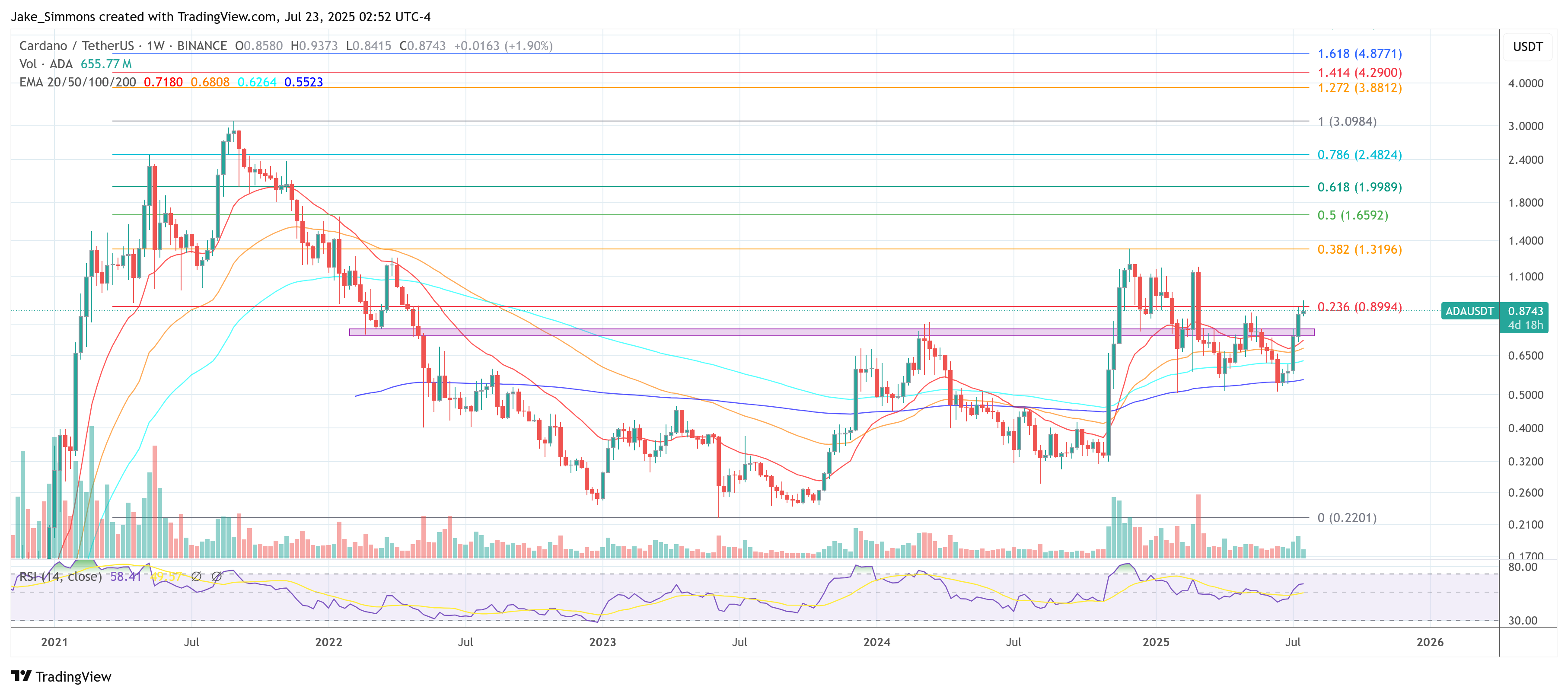
South Korea’s Financial Supervisory Service has verbally instructed local asset managers to limit exposure to crypto-linked stocks such as Coinbase and Strategy in ETFs, citing a 2017 policy that bars institutional investment in virtual assets.
Summary
- South Korea’s FSS has informally directed asset managers to reduce ETF exposure to crypto-linked stocks like Coinbase and Strategy.
- It cites a 2017 policy banning institutional investment in virtual assets, despite ongoing regulatory reform.
- The directive comes as South Korea begins phasing out its ban on institutional crypto trading.
According to the Korean Herald, the FSS delivered this guidance informally to several firms earlier this month. The instruction reportedly targets holdings in companies like Coinbase and Strategy, formerly MicroStrategy, which are often included in ETFs tracking crypto-related industries.
While not a formal enforcement action, the warning reaffirms that asset managers must continue observing the Financial Services Commission’s standing directive from 2017.
Why has the FSS issued this instruction now?
The FSS stated that, despite ongoing discussions around reform, regulated financial institutions must follow existing guidelines until new laws are formally adopted. The 2017 administrative notice prohibits such institutions from directly holding, purchasing, or investing in virtual assets or companies primarily involved in the sector.
The recent advisory was prompted by a noticeable uptick in domestic ETFs allocating large portions of their portfolios to crypto-exposed firms.
As an example, the Korean Herald referenced Korea Investment Management’s ‘ACE U.S. Bestseller ETF’, which holds over 14% in Coinbase shares, adding that several other active and passive funds have similarly high concentrations in related companies.
Officials have acknowledged that passive ETFs cannot easily remove specific stocks unless the underlying index changes. Still, they urged firms to be cautious in designing new ETF products.
The FSS said the intention was to prevent overexposure ahead of a formal regulatory overhaul.
Yet, the timing of the directive is notable since South Korea has already begun loosening its grip on institutional crypto access. As previously reported by crypto.news South Korean regulators have agreed to phase out the country’s de facto ban on institutional crypto trading.
Last month, nonprofit entities were permitted to liquidate donated crypto assets. Public companies and professional investors are expected to gain similar permissions in the second half of 2025.
What is South Korea’s stance on crypto ETFs?
South Korea has long maintained a cautious approach to crypto ETFs. Although retail investors are allowed to access foreign crypto-linked ETFs, local firms have been restricted from offering similar products.
However, since the U.S. and other major markets shifted toward more crypto-friendly policies, South Korea has begun recalibrating its stance. Last month, the Financial Services Commission submitted a new digital asset roadmap that included provisions to legalize spot crypto ETFs in the second half of the year.
Additionally, the People Power Party and the ruling Democratic Party have both supported legalizing crypto ETFs. The parties have backed bills enabling spot ETF trading and pledged to dismantle restrictive policies, such as the “One Exchange, One Bank” rule that limited partnerships between exchanges and financial institutions.
Much of this momentum has been accelerated following the election of President Lee Jae-myung, who has been a strong advocate for crypto sector reform. During his campaign, he pledged to legalize spot Bitcoin ETFs and expand institutional participation.
His administration has since moved to institutionalize crypto assets by introducing regulatory clarity and pushing for lower trading costs to attract younger investors.




Leave a Comment